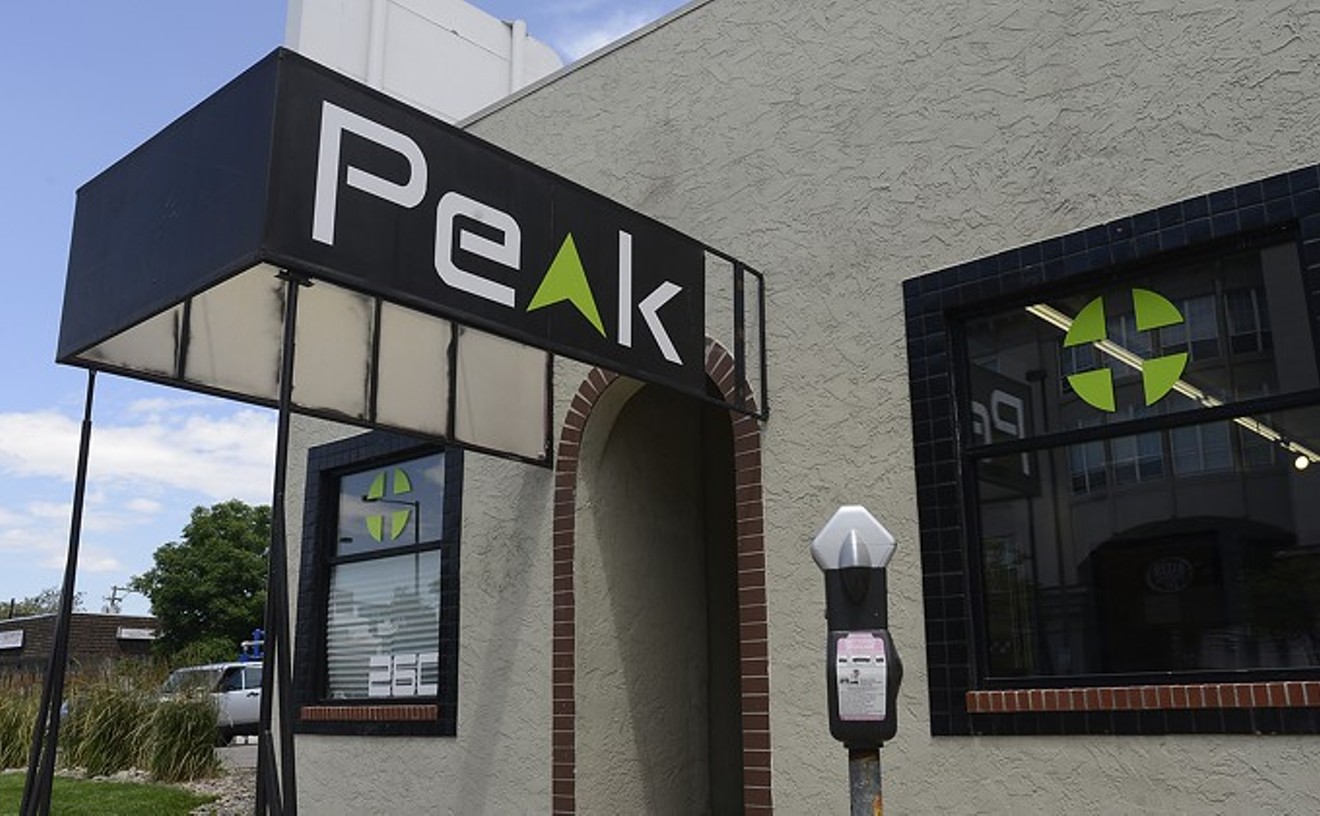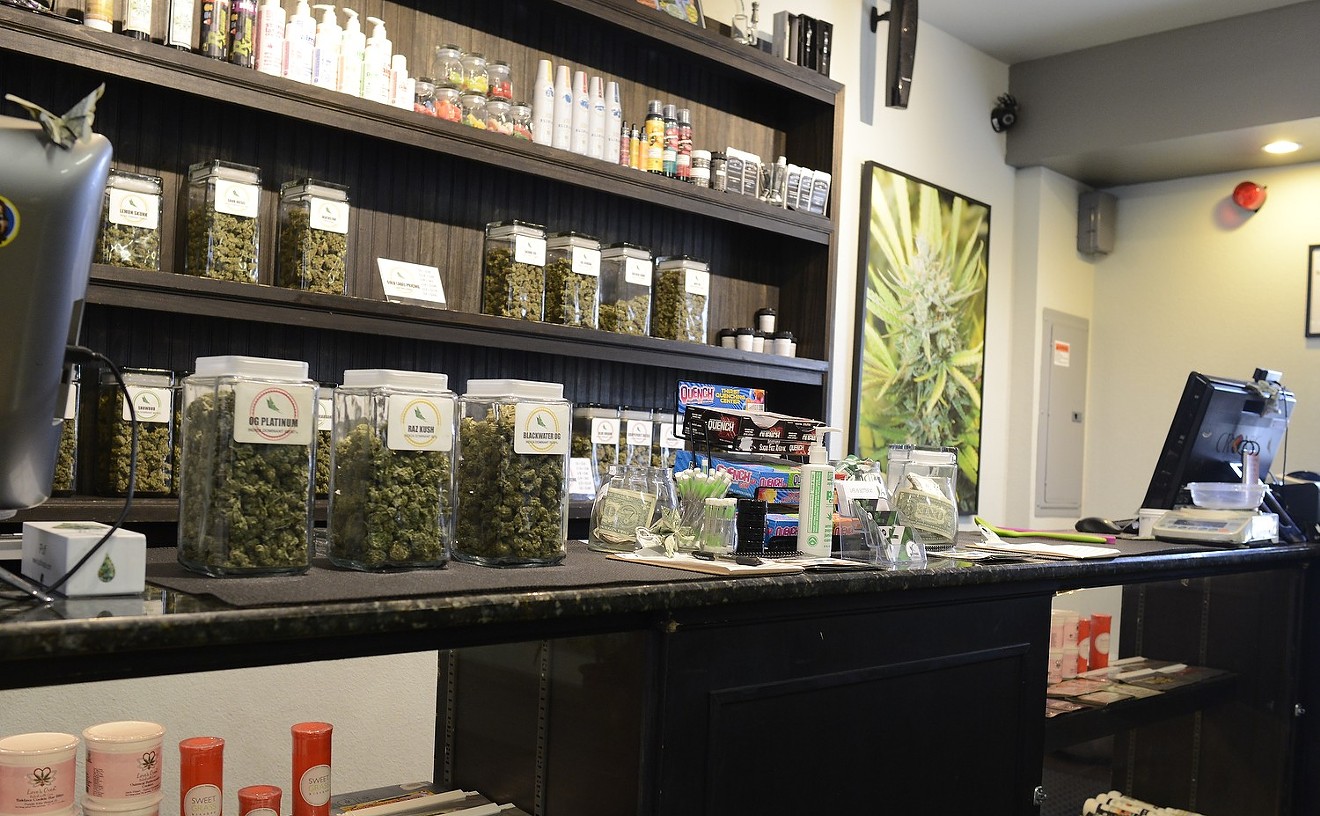Denver has learned a lot about implementing marijuana policy — and officials from around the world have been flocking here to study this city's secrets.
The Mile High City hosted its second annual Marijuana Management Symposium on Thursday, October 27, welcoming policy makers, police personnel and reps from cannabis companies from across the country, as well as Australia, Canada, the Netherlands and Uruguay for discussions about what Denver did right — and what they can learn from our mistakes.
After a brief video welcome from Mayor Michael Hancock, Ashley Kilroy, Denver's Executive Director of Marijuana Policy, and Andrew Freedman, Colorado's Director of Marijuana Coordination, kicked off the symposium with an overview of what's happened in this state since voters legalized marijuana four years ago.
"One of the themes that is coming out is how truly complicated this gets over time and that this isn't a light switch that suddenly you vote to legalize marijuana and put a few months of work into it," Freedman said. "This will take continual action."
Collaboration between departments is key, Freedman noted: "Creating those collaborative groups that you can reach out to every time you have a problem helps you figure out how to solve that problem."
And there are other benefits, he said. "Everyone understands why you made the choices you made at that time, so when the unintended consequences come up (as a result of) those choices, it's not just finger- pointing," Freedman explained. "Everyone understands we made this decision, it was a rational decision, it's led to this, so let's go back and look at why we made that decision."
Hancock also touched on collaboration in his video. "Here in Denver, we have adopted a collaborative approach to marijuana management," Hancock told the gathering. "Every day I see employees working together to educate themselves and keep each other informed on new practices and emerging technologies in this evolving industry."
While no one mentioned specific instances where agencies had clashed, numerous presenters talked about how difficult it can be to initially bring groups together.
In an afternoon panel on Law Enforcement and Public Safety, Marco Vasquez, the retired chief of police in Erie, said that it was
tough to establish relationships after legalization passed and everyone had to learn how to work together.
"Understand that the law-enforcement voice oftentimes gets drowned out," Vasquez said. "When we tried to talk about this, folks — legislators in particular — didn't particularly want to hear what we had to say."
James Henning, a commander in the Denver Police Department, said he'd underestimated how much work it would take to address the retail market and all the issues that came along with it. "Right after the election...we thought we'd just change a few policies, do a little bit here, do a little bit there, and everything would be fine and we would move on," he told the group. "It didn't turn out that way."
In fact, Henning said, legalization was like a tidal wave, "a tidal wave that takes out all of city politics. It's every city agency."
[
{
"name": "Air - MediumRectangle - Inline Content - Mobile Display Size",
"component": "12017618",
"insertPoint": "2",
"requiredCountToDisplay": "2"
},{
"name": "Editor Picks",
"component": "17242653",
"insertPoint": "4",
"requiredCountToDisplay": "1"
},{
"name": "Inline Links",
"component": "18838239",
"insertPoint": "8th",
"startingPoint": 8,
"requiredCountToDisplay": "7",
"maxInsertions": 25
},{
"name": "Air - MediumRectangle - Combo - Inline Content",
"component": "17261320",
"insertPoint": "8th",
"startingPoint": 8,
"requiredCountToDisplay": "7",
"maxInsertions": 25
},{
"name": "Inline Links",
"component": "18838239",
"insertPoint": "8th",
"startingPoint": 12,
"requiredCountToDisplay": "11",
"maxInsertions": 25
},{
"name": "Air - Leaderboard Tower - Combo - Inline Content",
"component": "17261321",
"insertPoint": "8th",
"startingPoint": 12,
"requiredCountToDisplay": "11",
"maxInsertions": 25
}
]











